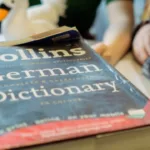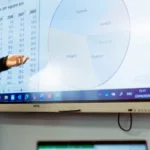
Economics
Economics will give students the analytical and evaluative skills required to deal with a range of questions and issues that affect the world today.
A Level Economics
You will learn to apply fundamental economic principles and concepts to the behaviour of consumers, workers and firms (microeconomics); and to the national and international economy (macroeconomics).

What does the course involve?
You will learn to apply fundamental economic principles and concepts to the behaviour of consumers, workers and firms (microeconomics); and to the national and international economy (macroeconomics). The key to doing well is being able to develop your ability to utilise economic methods to rigorously explain, and discuss, both microeconomic and macroeconomic outcomes, issues and ‘real world’ events. Within these themes, students explore various concepts like market dynamics, macroeconomic performance, business strategies, and international economics.
Assessment
Qualification
A Level
Awarding Body
Pearson
There are three written exams at the end of Year 2. These have a mixture of short questions to test your analytical skills as well as data response and essay questions which ask you to discuss economic issues in greater depth.
Some universities recommend the combination of Business and Economics as two separate A Levels is best avoided, therefore we advise you to check individual university entry requirements.
Entry Requirements
You are not expected to have any previous experience of Economics, however as a minimum you will need:
- Grade 6 or B in GCSE Mathematics;
- Grade 6 or B in GCSE English Language
You must also:
- Be interested in the economic issues that feature constantly in the news.
- Be comfortable working with graphs and numbers.
- Be able to produce good written English.
- Have good analytical skills.
Topics Covered
- Introduction to Markets and Market Failure
- The UK Economy
- Business Behaviour and the Labour Market
- A Global Perspective, including Global Trade & Development Economics
Trips
There are non-compulsory trips to Economics student conferences andrevision events. A one-day trip may cost approximately £45 to £100, depending on location. There are also other enrichment activities. For instance, we often host relevant outside speakers.
Career path
A qualification in economics is useful for many different career paths including politics, journalism, banking, and business. Economics is highly valued by employers who respect its rigorousness and the variety of mathematical and written skills it gives graduates.
I am at the University of Surrey studying Economics, which I am really enjoying. I chose this degree because I really loved studying A Level Economics at Hereford Sixth Form College. I thought it was fascinating learning about theories in class and then going home and watching the news and applying those theories to real life situations.
Lucinda
































































